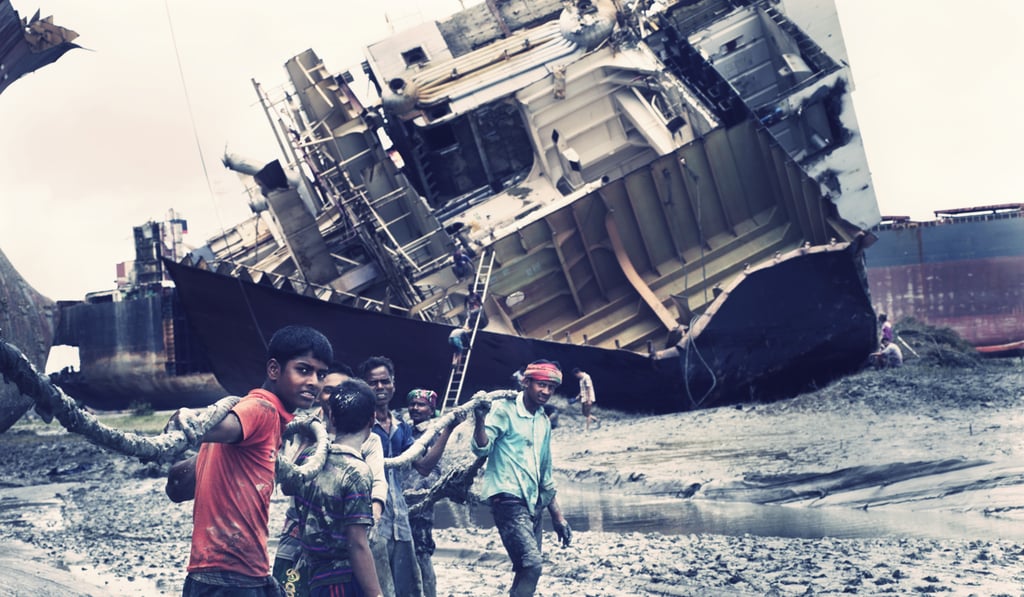Two years since Pakistan’s Gadani ship-breaking disaster, why are workers still dying?
- Despite the Hong Kong Convention, dismantling ships for raw materials or parts remains a dangerous, lawless industry.

Even on their lunch break, ship-breakers are dicing with death. On November 1, 2016, up to 39 workers – the exact toll is unknown – died in a huge explosion on board an oil tanker in Gadani, the worst ship-breaking accident on record.
Two years later, almost to the day, two fires broke out this month in the yard, injuring seven, a macabre parallel that emphasises how nothing has changed in this dirty and dangerously unregulated industry.
Nasir Mansoor, the deputy general secretary of Pakistan’s National Trade Union Federation (NTUF), reveals the terrifying daily grind for Gadani workers – 60 per cent have fled war-torn Afghanistan border towns, desperate for work that no others will do, even if wages are slightly higher than the average sweatshop job.
Mansoor says: “They don’t have any choice but to work in very dangerous conditions. There are not even any medical facilities on site, no emergency services, not even safe drinking water. This is skilled work, but the maximum they earn is 1,000 rupees [HK$105], to do 12 hours a day, with no holidays.”
